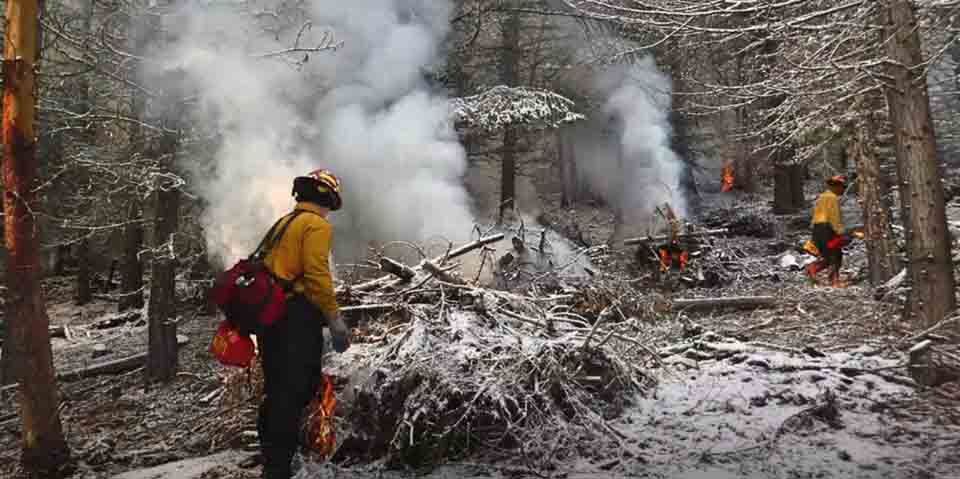Phase One of Ashland’s Climate Adaptation Project is 95% Complete

ASHLAND, Ore. — The imminent danger of the outbreak of wildfires is being addressed by the Ashland Forestry Department in a project to protect private homes, wildlife habitat, and the woodlands that surround the city.
Named the Climate Adaptation Project, Ashland has allocated $644,000 to reduce wildfire risk in the Siskiyou Mountain Park, and land owned by the city in the lower Ashland Watershed.
The Danger of Wildfire is Spiking
Ashland Forestry Officer Chris Chambers says the project will build climate resilience to drought and climate change soaring summer temperatures.
“Now is the time to act because the danger of fire is spiking,” explains Chambers.
The two-phase Climate Adaptation project is in response to the increased number of Douglas firs dying in southern Oregon and northern California.
Phase One, earmarked to remove the dead timber by helicopter in the mountainous region, is almost completed.
Phase Two will involve sourcing and cultivating drought-resistant trees such as California black oak and Ponderosa pine. This phase will be spread across several years.
Chambers says Phase One is 95% complete and is now in a mopping up stage conducted by Ashland Foirest Resiliency project partner, the Lomakatsi Restoration project. This nonprofit organization develops and implements watershed and forest restoration initiatives and projects throughout Oregon, as well as northern California by partnering with local, state, and federal agencies. The aim of the Lomakatsi Project is to restore miles of streams and thousands of acres of forests.
Chambers says that Lomakatsi is now creating stockpiles of leftover timber in the forestlands which have been cleared of dead trees by helicopter. A controlled burn at the end of the wildfire season will get rid of the stockpiled timber.
Woodland Hiking Trails Hae Reopened
Ashland has reopened its hiking trails that were temporarily closed during operation Climate Adaptation. Hikers should be aware that Lomakatsi workers are still engaged in roadside logging, which should be completed by the end of July.
The Ashland Forestry Officer says the new project has evolved because of climate change and while the cultivation and planting of fire-resistant trees will not happen overnight, the project will ensure that Ashland’s forests remain vibrant.
References
